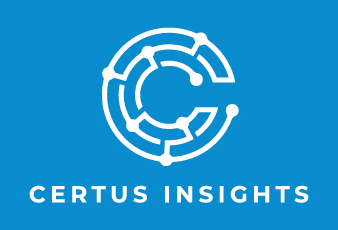27 Apr A Crisis Ought to Lead Us into Real Change
If anything comes out of the coronavirus crisis, it is the glaring need to tackle big, neglected issues. Here are five of them:
First, make a sweeping commitment to eradicate disease and improve treatments.
From cancer and Alzheimer’s to heart trouble, diabetes and Parkinson’s. We need to go further than we’ve ever gone. We need a “whatever it takes” mentality. The quality and duration of human life has improved over the past century because of medical research. Vaccines for measles and polio, antibiotics for a range of diseases and insulin treatments for diabetes are a few examples. America needs to nurture our biomedical sectors and redouble efforts to educate and attract the best scientists and biologists. This will take money, expertise and a solid plan.
Second, stockpile medical and testing supplies before pandemics strike.
It’s absurd to scrabble around at the last minute to locate, ship and manufacture testing kits, masks, gloves, reusable clothing and ventilators. We need to have these items ready for any eventuality––and we need to manufacture them with American labor. Public institutions must coordinate, in advance, sensible purchasing and storage plans. Hospitals, public health agencies, community organizations, the military, police and fire departments––they all must be equipped to protect their own personnel as well as the general public.
Third, rebuild infrastructure.
People have been saying this, and politicians have been promising this, for years. But it’s time to do it. If we can spend $2.2 trillion on short-term recovery efforts and bailouts, we can find half that for a long-term rebuilding program. Infrastructure is the underlying foundation of our economy and national security. That was so in the early 1800s when Henry Clay sponsored the “American System” of internal improvements and in the 1930s when Franklin Roosevelt pushed through gigantic public works projects. For America to be competitive during the next fifty years, infrastructure that’s safe and modern is essential. This includes roads, bridges, drainage, tunnels, airports, wetlands restoration, water and flood control systems, ports and navigation, hospitals and clinics, public transit and power grids.
Fourth, cut red tape with a vengeance.
The accumulation of bureaucracies and rules over the last half century is the elephant in the room. We know it’s there, but for some reason public officials and candidates back away from addressing it. Reforming the structure and management of government is sorely needed. We pay a stiff price for mindless paperwork and senseless regulatory hoops: Public works projects are delayed, sometimes for years and sometimes endlessly; time and dollars are wasted; program results fall short. The civil service system has mutated from a good-government reform in the 19thcentury to a Rube Goldberg contraption of bureaucratic inefficiencies in the 21stcentury. It needs overhaul. Giving agency managers and employees the responsibility to do their jobs, without giving them the tools and flexibility, guarantees failure. We see it every day.
Fifth, make sure America leads the world with advanced telecommunications, healthcare, energy, environmental and wireless technologies.
An example is the 5G mobile network, which connects every person and machine with greater capacity, higher speeds and better performance. The coronavirus outbreak and the increase in remote work and online education spotlights the immediate need for more robust 5G technologies in our country. China already claims to have the world’s largest 5G network. While U.S. companies have launched low-band services, we need to do better. Enactment last month of the Secure 5G and Beyond Act of 2020(S. 893) is a chance to chart a national strategy––something we badly need.
All five priorities are essential to our future. While none are perfect or easy to accomplish, combined, they can fix broken government, create jobs, advance medicine, lessen poverty, raise standards of living and reduce effects of climate change. The colossal brainpower and ingenuity of the American people must be unleashed to tackle them all.
Now is the moment.
This story was originally published in the New Orleans Times Picayune and Baton Rouge Advocate. You can view the original story here.
